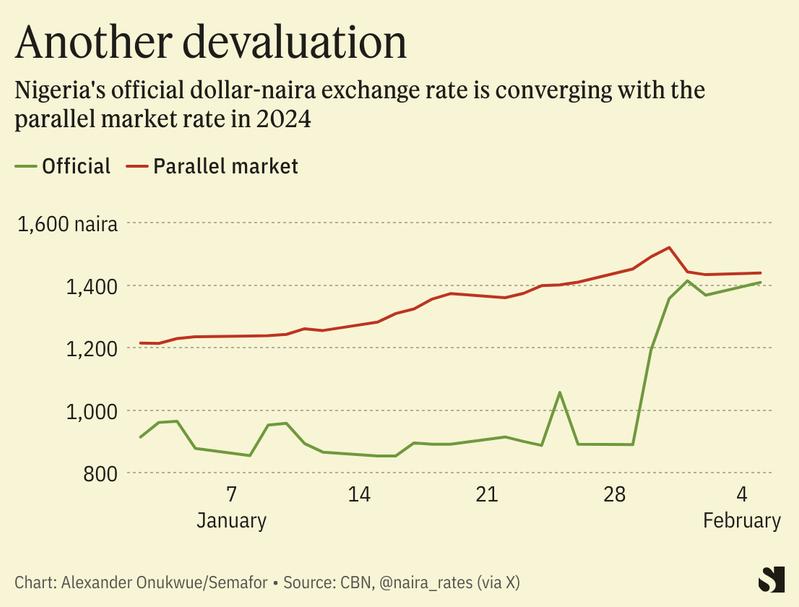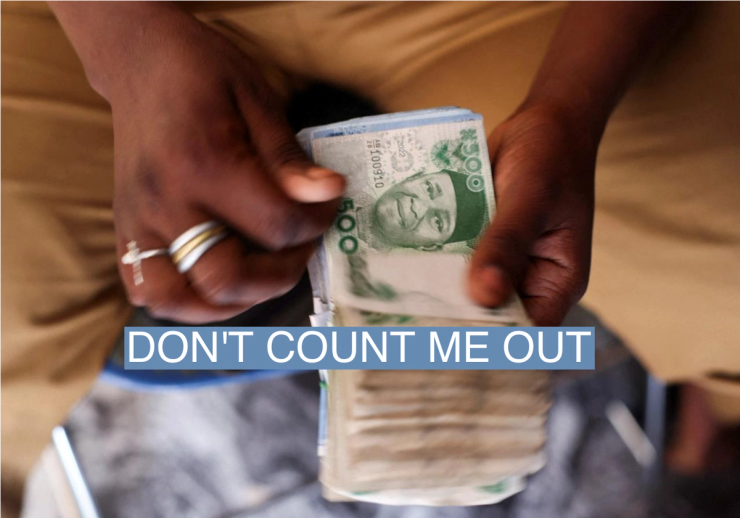The Facts
Nigeria’s central bank and other monetary authorities are implementing new measures to quell the rapid depreciation of the naira currency against the dollar and attract foreign investors. Over the past two weeks, they have undertaken a second devaluation of the currency, reviewed regulations for international money transfer operators (IMTOs) and cautioned commercial banks against hoarding dollars.
Know More
→ What’s the background? Nigeria’s supply of dollars from oil receipts has lagged demand from businesses in recent years, driving attention to the informal currency market on street corners. A backlog of $7 billion in unpaid obligations, according to central bank governor Yemi Cardoso, has seen foreign businesses such as international airlines struggle to recoup earnings from the country.
→ So, why a second devaluation? Nigeria again moved the official exchange rate closer to the parallel market rate at the end of January following the removal of multiple exchange rates last June after Bola Tinubu became president. FMDQ, a firm that computes the official rate, changed its methodology to ensure “rates accurately reflect market conditions.” Following that, the central bank removed a rule that instructed remittance companies to anchor their exchange rates plus or minus 2.5% of the official rate.

→ How might this pay off? While it will increase short term market volatility and uncertainty, the revisions could encourage medium to long term economic growth, Pieter Scribante, an economist at British advisory firm Oxford Economics Africa, told Semafor Africa. He expects the weakened exchange rate to discourage imports, promote non-oil exports, and raise the naira-denominated value of fuel exports. But he also anticipates a “negative impact” and could “raise inflation to an average of 30% in 2024.”
→ What’s the status of the $7 billion backlog? In a TV interview this week, Cardoso said a central bank-ordered audit by accounting firm Deloitte has raised doubts about the validity of a third of the claims. The central bank has cleared about a third with the outstanding to be settled “very shortly” he said. IATA, a trade group of international airlines, said Nigeria still owes its members $700 million as of the end of January.
→ Will the remittance reforms affect the exchange rate? Nigeria receives over a third of remittances to sub-Saharan Africa ($20.5 billion last year) but “sadly very little comes through the official channels,” Cardoso said. The bank’s revised rules for IMTOs will cause more flows through the formal market, helping to increase supply and reduce volatility, he said.
→ How are local money transfer operators responding? Beside global players like Western Union and WorldRemit, some of the remittances into Nigeria is mediated by fintech startups. But given the central bank’s rules announced last month note that companies licensed in Nigeria as fintechs are not permitted to carry out remittances, it could be necessary for fintechs with remittance products to clarify their status to customers.
Flutterwave, the online payments startup increasingly pushing its Send App as an anchor product for the future, said it has “an independent structure for our IMTO/remittance services under our Nigeria Holding Company Structure that ensures that we are in full compliance with this policy,” in a statement to Semafor Africa.


